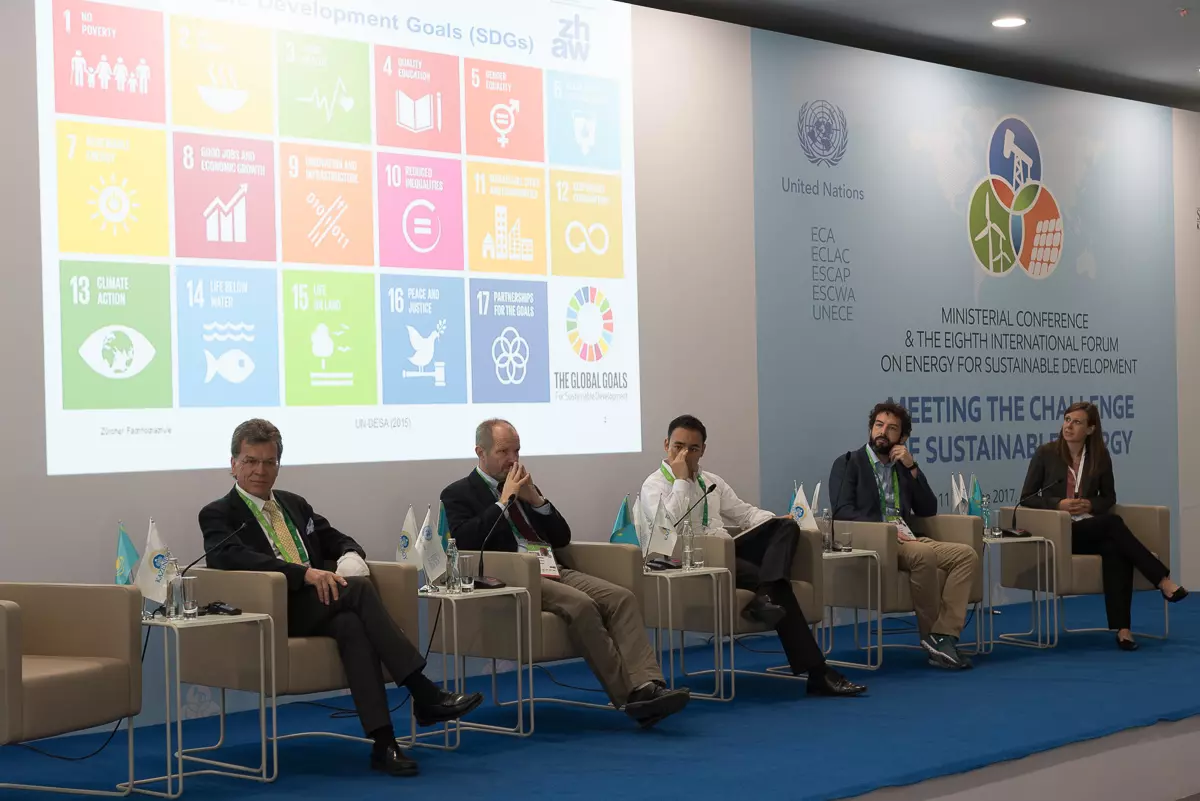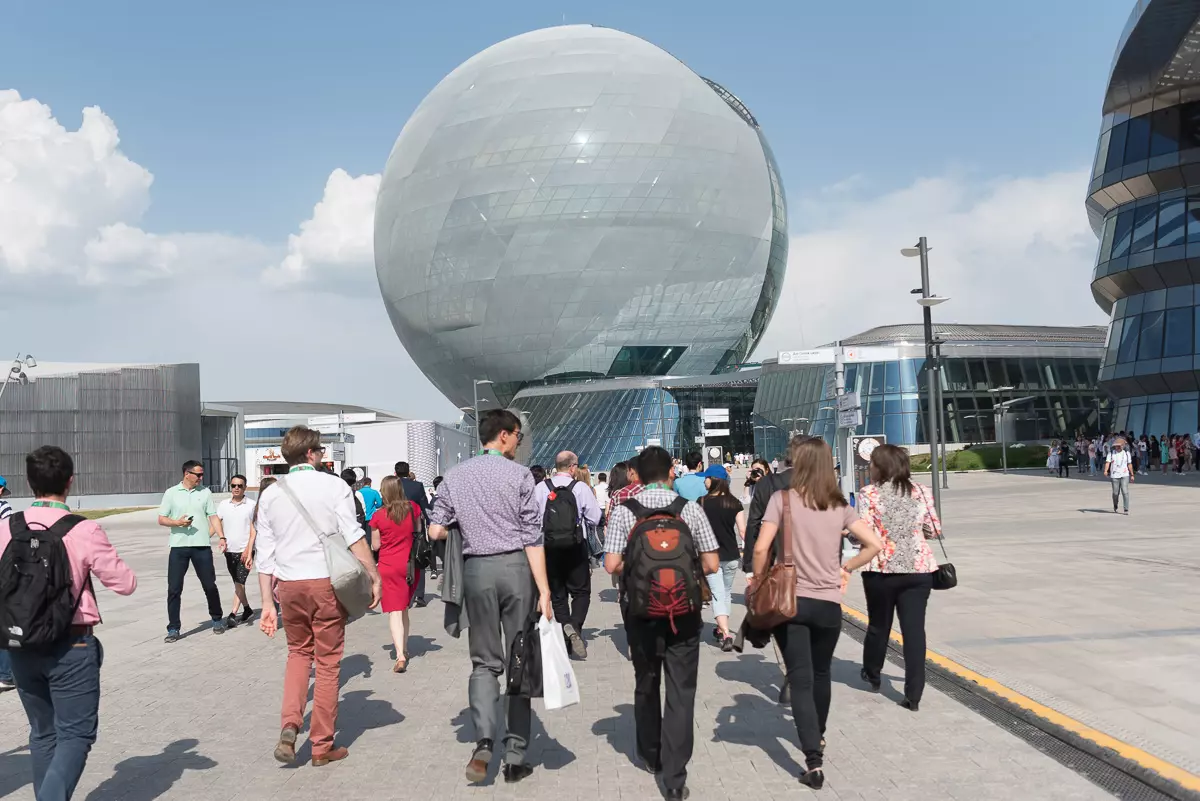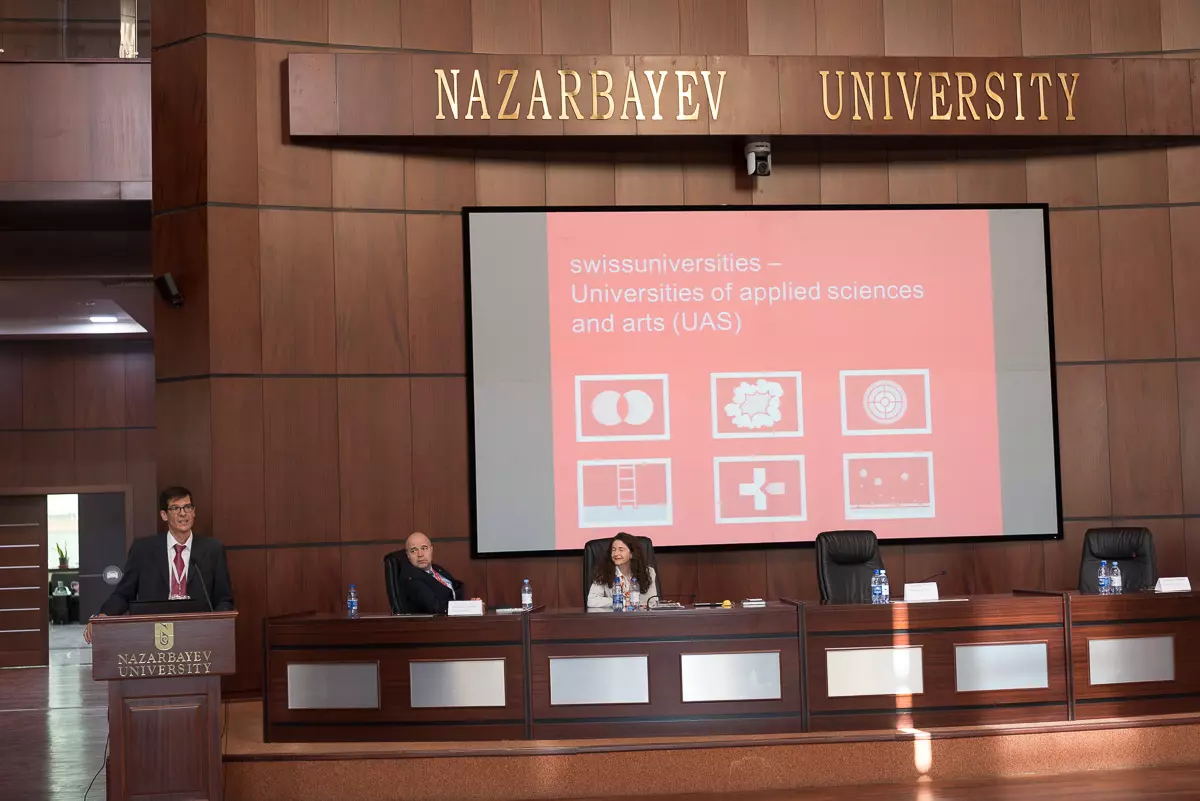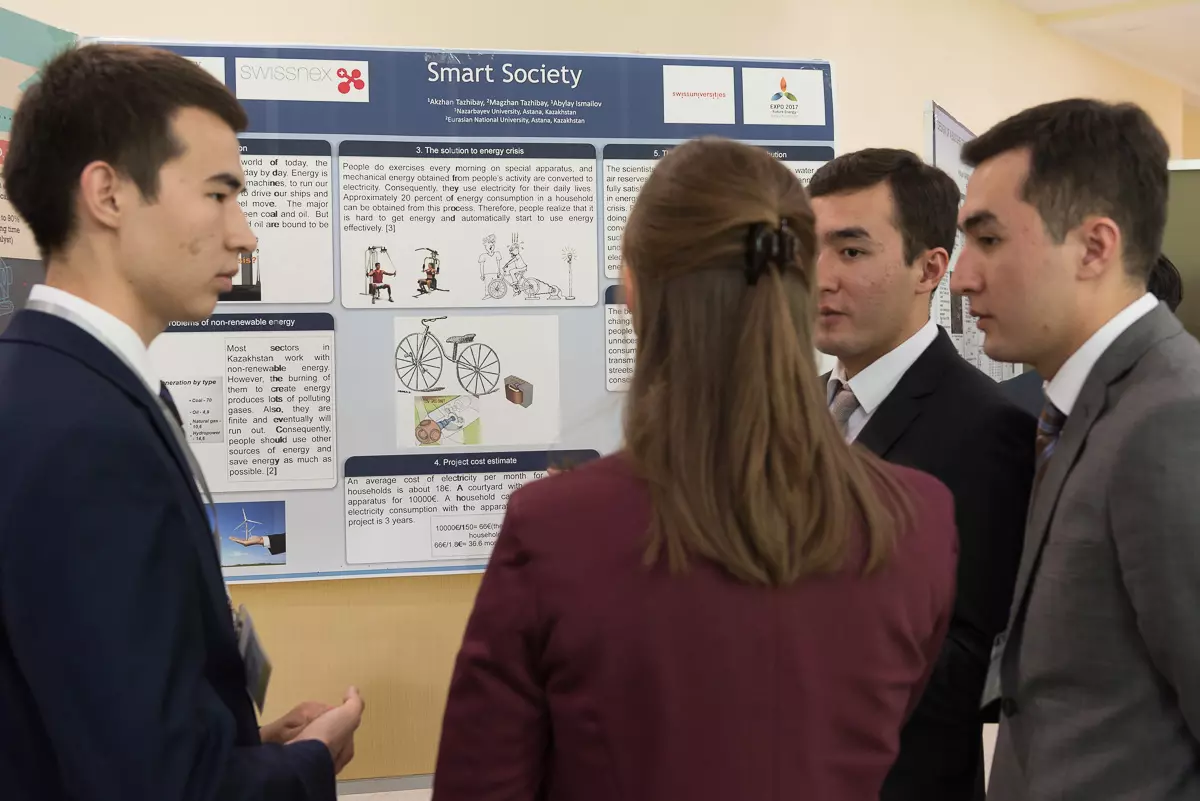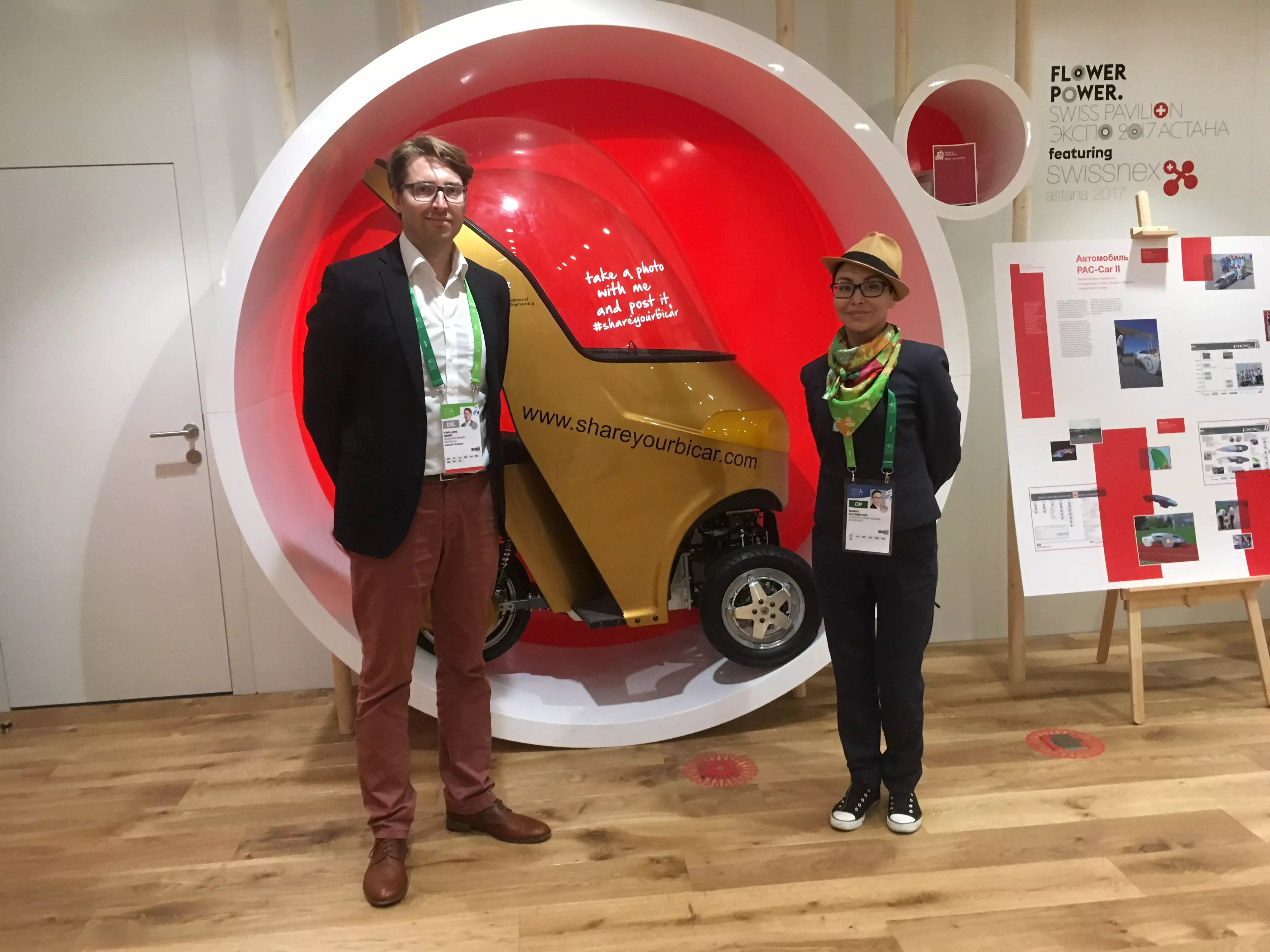ZHAW research and innovation at the Expo 2017 in Astana
The Expo 2017, which is dedicated to the theme of "Future Energy", opened on Saturday 10 June in Astana, Kazakhstan. During the opening week, a delegation of researchers from the ZHAW and other Swiss universities participated in international conferences, some of which took place within the framework of the 8th International Forum on Energy for Sustainable Development.
Switzerland is represented at this world exhibition, the first to be held in Central Asia, with a pavilion designed to reflect the "Future Energy" theme and to showcase Swiss expertise and innovation in energy efficiency and renewable energies. The Swiss pavilion in Astana also witnessed the first launch of a temporary swissnex model: the integrated swissnex lab enables coordination and the exchange of ideas and expertise between Kazakh and Swiss stakeholders in the fields of education, research and innovation through scientific events, workshops and temporary exhibitions.
A group of experts from the ZHAW and other Swiss universities also took advantage of this opportunity to exchange ideas and knowledge as members of a swissuniversities delegation. During the opening week, this interdisciplinary delegation participated in various international conferences in which the discussion focussed on social and technological innovations for the development of smart sustainable cities.
International discussion on smart cities of the future
Together with the United Nations Economic Commission for Europe (UNECE), swissuniversities and the Copenhagen Centre on Energy Efficiency, the ZHAW organised the Smart Sustainable Cities Day on Wednesday 14 June 2017. This event, which took place within the framework of the 8th International Forum on Energy for Sustainable Development, was opened by Urs Schmid, the Swiss ambassador to Kazakhstan, and Ivonne Higuero, Director of the UNECE Forests, Land and Housing Division.
A number of international experts spoke at the Smart Sustainable Cities Day. Vicente Carabias-Hütter, Deputy Director of the ZHAW Institute of Sustainable Development (INE), moderated the second session, "Integrated Approaches of Energy and Transportation Infrastructures for Cities", which dealt with topics and best practices related to integrated energy and transport systems for the smart and sustainable development of cities. The last session of the day, "Designing Smart and Sustainable Urban Isles", was moderated by Heinz Bernegger from the ZHAW Institute of Facility Management (IFM). During these sessions, researchers from several ZHAW Schools gave talks and presented findings from their research activities.
Social and technological innovations are essential
The topics addressed at the Smart Sustainable Cities Day on Wednesday 14 June were continued at the international seminar entitled "Towards Smart Sustainable Cities – Integrated Approaches", which took place at Nazarbayev University in Astana from Thursday 15 to Friday 16 June. Experts from the swissuniversities delegation and from Kazakhstan, Germany, Russia and the USA discussed the topics raised at the Smart Sustainable Cities Day in greater depth and addressed various aspects concerning the development of cities into intelligent, sustainable urban living spaces.
Vicente Carabias-Hütter, who co-organised the seminar, was delighted by the knowledgeable contributions and academic exchange that took place among all the participants: "The conference was very instructive and informative, and it showed that both social and technological innovations are necessary to pave the way for smart sustainable cities. Students from Nazarbayev University submitted creative solutions in their contributions to the poster competition. And in the final session, participants were already discussing future partnerships."
Exchanging ideas on education
In the run-up to the international seminar, representatives from the ZHAW, swissnex mobile and Nazarbayev University, a new but fast-growing institution, met to discuss forms of cooperation and ways of exchanging ideas regarding both research and education. According to Vera Narodnitzkaia, Head of the International Affairs Unit at the ZHAW, research and teaching at Nazarbayev University are at a high level: "Supported by their lecturers, students enrolled on the programmes taught in English reach a high level of academic achievement."
Bicar: ZHAW innovation at the Expo
The ZHAW and its spin-off "Share your BICAR" presented the Bicar, a concept for sustainable urban mobility consistent with the discussion on smart sustainable cities. The lightweight vehicle with its distinctive gold body is on show in the swissnex lab and has attracted a large number of international fans since the Expo opened. The Bicar, which has been developed by an interdisciplinary team of researchers at the ZHAW, combines the advantages of a bicycle and an electric car to create an innovative urban vehicle.
During an interview in the swissnex lab, Hans-Jörg Dennig, from the ZHAW Centre for Product and Process Development (ZPP), explained the benefits of the Bicar sharing concept and the contribution it can make to a smart transport system: "The Bicar concept is intended to be just one element in the transport system and to operate in conjunction with other forms of public transport mobility. The Bicar is easy to manoeuvre and, thanks to its three-wheel design, a safe lightweight vehicle. It is designed as a sharing concept to cover only the first and last 'mile' of a journey and consequently to reduce the traffic burden in cities."
